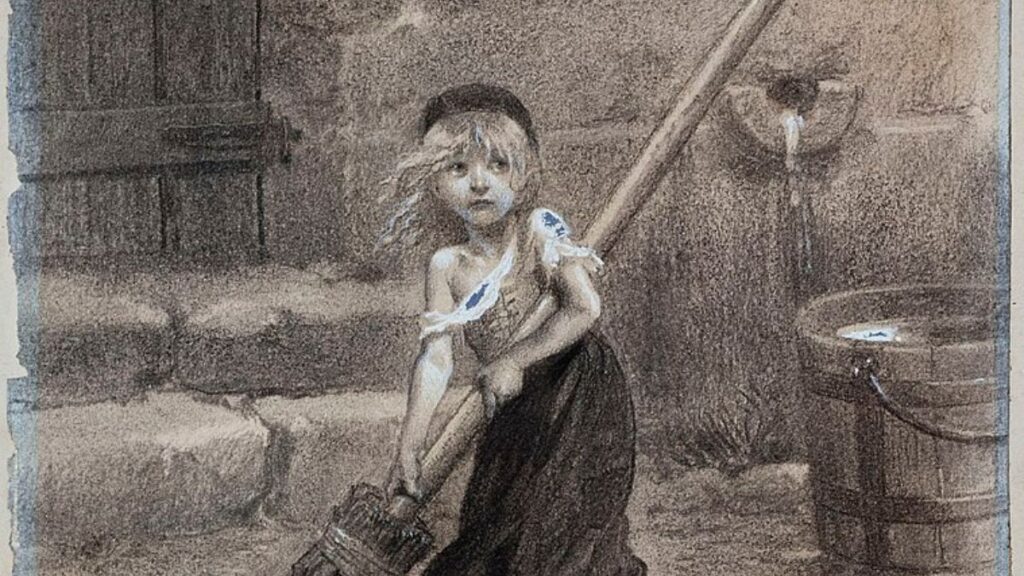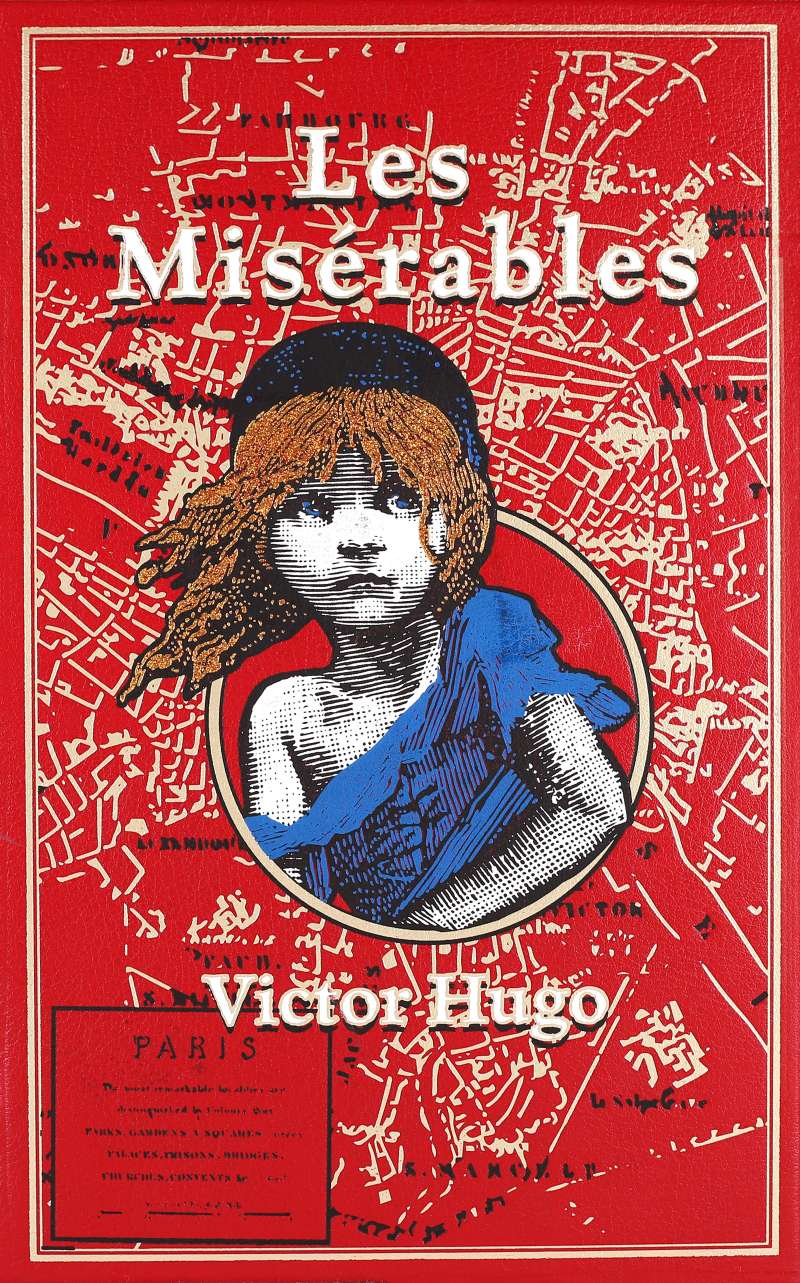By Brian Boone
Joyeux anniversaire to iconic 19th century French author Victor Hugo, who’d celebrate his 222nd birthday this February 26. He’s responsible for some of the most enduring and frequently adapted literary works of all time, including The Hunchback of Notre Dame…and Les Misérables, probably the single most important work about the French Revolution.
Add this stunning Leather-Bound edition of Victor Hugo's famous work to your library today.
LONG WRITE, LONG READ
Victor Hugo began his research and outlining on Les Misérables in 1829, but the project proved such an undertaking that it took him 33 years to fully write. In that 33 year work period, Hugo also churned out the novels The Hunchback of Notre Dame, Claude Gueux, Le Rhin, and The Poor People. Nevertheless, all that work wound up on the page: The original French language first edition of Les Misérables runs about 1,900 pages.
LES MEH-SERABLES
Despite Hugo’s status as a major literary icon in France, critics were left underwhelmed by Les Misérables. Overall, his style and unabashed social commentary earned plaudits, but his long, didactic, and pedantic sections describing the intricate politics of the French Revolution, as well as possibly unnecessary side material—there’s a whole chapter about the problems of the Parisian sewers—were heavily derided.
REALITY DETECTED
Obviously, Hugo took inspiration from history, but in creating some of his lead characters, he leaned on real life, too. Main character and redemption seeker Jean Valjean, a peasant imprisoned for decades, in part for stealing bread to feed his sister’s starving child, is based on Eugene Francois Vidocq. He was a criminal in France who joined the other side of the law and became a detective.
AMERICAN FICTION
The first English translation of Les Misérables was made for American readers, beating a British publication to the punch by four months in 1862, the same year Hugo’s original French manuscript hit bookstores. Charles Wilbour’s take became a hit in the U.S., its themes of war and perceived revolution resonated with Confederate troops fighting in the Civil War. Those who’d read the novel nicknamed themselves “Lee’s Misérables,” referencing General Robert E. Lee.
A BRAND NEW STAGE
Despite its length and poor reviews, Les Misérables became a hit throughout Europe, and remained a bestseller for decades. Then, as now, that meant there was a market for adaptations. Around the turn of the century, producers asked Italian composer Giacomo Puccini to write Les Misérables as an opera. He turned down the offer because he didn’t think Les Misérables would work on the stage.
ALL SINGING, ALL DANCING
Puccini was probably wrong, because the English-language musical Les Misérables is one of the most successful stage shows in history. Classified as a musical, it’s actually sung all the way through—like an opera—and has been running on London’s West End since 1985 and lit up Broadway from 1987 to 2003. This version of Les Misérables, with famous songs like “I Dreamed a Dream” and “One Day More” is based on a semi-obscure, French language rock opera released as an album in 1980.
As translated by Isabel F. Hapgood, Victor Hugo’s epic Les Misérables is available in two different styles from Canterbury Classics. We’ve got you covered if you’ve dreamed a dream of a leather-bound edition, or, come what may, in a portable, flexible edition.









